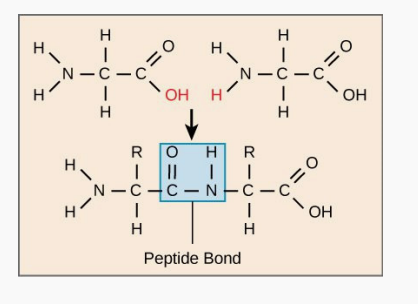Progress in synthesis and application of peptide
Peptide is a compound of α-amino acids connected by peptide bond, which is the intermediate metabolite of protein. In general, a peptide is a compound formed by the dehydration of less than 100 amino acids, with a relative molecular weight of less than 10,000. peptides have high biological activity. At present, tens of thousands of endogenous peptides have been found, including hormones, growth factors, neuropeptides and other regulatory factors, they play an important role in the immune system, nervous system, endocrine and so on.

There are many ways to synthesize peptides, which are mainly divided into two ways: chemical synthesis and biosynthesis
1 Chemical Synthesis
Chemical synthesis is mainly achieved through amino acid dehydration condensation reaction. During the reaction process, the raw material is not required.The amino acids to be reflected are temporarily protected, thus ensuring a directed synthesis. Chemical synthesis is divided into solid phase and liquid phase synthesis, the main difference is whether to use a solid phase carrier.
Liquid phase synthesis: There are two strategies for liquid phase synthesis, step-by-step synthesis and fragment combination. Step by step synthesis is simple and fast, suitable.The synthesis of most peptides, and fragment combination is conducive to the synthesis of larger peptides (containing more than 100 amino acids), the biggest feature is easy to pure.
Solid phase synthesis: The solid phase synthesis method was invented by Merrifield in 1963, the principle is to fix the C-terminal of the amino acid to the insoluble resin, and then carry out a condensation reaction to extend the peptide chain. Solid phase synthesis can be subdivided into Fmoc (9-fluorene methyl oxycarboxyl) and Boc (tert-butoxycarboxyl) methods. Boc method is a classical method with Boc as the protective group of α-amino acid and benzyl alcohols as the side chain protective group. Fmoc is a protective group for the amino acid α-amino. Compared with Boc method, Fmoc method has the advantages of mild reaction condition, high yield and less side reaction.
2 Biosynthesis
Biosynthesis mainly includes enzymatic hydrolysis, genetic engineering, and fermentation.
Enzymatic hydrolysis: The use of biological enzymes to degrade macromolecular animal or plant proteins to obtain small molecular peptides. The method fails to achieve industrialization, because of low output, long cycle, serious pollution, etc. However, enzymatic hydrolysis can retain the nutritional value of the original protein, which is more green and healthy.
Genetic engineering method: This method is based on DNA recombination technology to control the sequence production of peptides through DNA sequence agreed. The advantages of this method are strong orientation, low cost, safety and health, but the yield is low and it is difficult to scale production.
Fermentation: Fermentation is the use of microbial metabolism to obtain peptides. Characterized by low cost, but because so far it is known that only cyanopeptide, ε-polylysine (ε-PL) and γ-polyglutamic acid (γ-PGA) can independently synthesize polyamino acids.
Since the discovery and application of insulin in the 1920s, peptides have gradually become a research hotspot. More and more functional peptide molecules have been discovered and are used in medicine, beauty and health care industries. Collagen peptide, sheep placenta antioxidant peptide, etc. are used in skin care products and health care products, can play a role in delaying aging, skin care and beauty. In medicine, peptides serve human, animal, and plant health as vaccines, drugs, and diagnostic reagents global research and development of peptide drugs.
To date, more than 80 peptide drugs have been approved to enter the market, such as well-known products such as Liraglutide and leuprelin, and more than 400 drugs are in clinical development. peptide drugs are effective in tumor, cardiovascular disease, diabetes, gastrointestinal disease, central nervous system disease, immune disease, anti-viral antimicrobial, acromegaly and other aspects.
Copyright © 2020 Omizzur Inc | Terms & Conditions | Privacy Notice | Sitemap